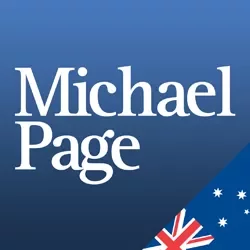5 ways to improve equity in the workplace



‘Diversity & Inclusion’ has quickly become more than just a hot-topic issue for businesses around the world — and for good reasons too. After all, discrimination of any kind has no place in our society, let alone the future workplace. However, beyond just the right thing to do, studies have also shown that diversity and inclusion is good for business, too.
In a recent analysis, Wall Street Journal revealed that the 20 most diverse companies in the S&P 500 performed better than the least diverse firms over five- to 10-year periods — 4 percentage points more in terms of average operating profit margin, to be exact. A separate study from Mckinsey reinforces this point, with the top 25% of companies studied for their gender diversity having a greater chance (21%) to experience above-average profitability.
Considering the hard figures, the business case for diversity and inclusion is hard to ignore. However, recognising the potential benefits does not necessarily equate to action and implementation, at least among S&P 500 companies. For example, less than a dozen companies in the S&P 500 have at least 50% female boards; less than 5% are run by a female CEO or equivalent; the number of female executives averages at just 18% in 2020. That is not to say that headways have not been made over the years. In 2020, S&P 500 boards appointed 413 new independent directors, with 59% of them being women and minority men, a small yet significant step in the right direction.
As part of International Women’s Day 2021, Page Executive recently hosted an exclusive webinar session that featured an esteemed list of female leaders from across APAC: Datin Yasmin Merican, President of Malaysian AEON Foundation & CEO, Trax Associates; Aliza Knox, Non-Executive Director of Healthway Medical Group and Grand Thornton International (London); H.E. Margriet Vonno, Ambassador of the Kingdom of Netherlands to Singapore & Brunei; as well as Noni S.A. Purnomo, President Director of PT Blue Bird. Representing Page Executive was Jon Goldstein, Regional Director of Southeast Asia at PageGroup.
Part of the conversation touched on practical actions that businesses can take to improve equity at the workplace. Here are some of the highlights:
Mentorship at the workplace means giving advice and guidance to less experienced employees within the organisation. Sponsoring, on the other hand, goes beyond just giving friendly career advice. Knox explained that mentoring is about investing in an employee’s career and using your influence and network to connect them to high-profile assignments or decision-makers. “Many tech firms have these calibration sessions, where [there is] a limit on how many people we can promote at once. Sponsoring means that you are out there saying, ‘Listen, I understand that all four of these people are equally good, and we can only promote three, but I really believe that so and so is ahead’,” Knox said. “Sometimes, that person is a man or a woman, but I think as women, we can look to sponsor other talented people, and we bring them up.”
Recruiters, too, are in an interesting position to improve a company’s equity. During the discussion, Goldstein said that it was a good idea for leaders to ‘get out of what’s in their heads’ when hiring. “A lot of clients come to us with [an] ideal based on what they know, and what they know generally refers to the male idea of what the ideal candidate is,” he explained. One way to deal with this mindset, then, is to challenge the status quo. “One of the most important things for me, my peers and all the different recruitment companies out there is to challenge back. We encourage our clients to consider a female candidate. It’s a risk, and we risk our clients pushing back, but that’s just the right thing to do.”
Fostering diversity and inclusion at the workplace goes beyond the current generation of workers, too. To Vonno, it is also about nurturing the next generation of leaders and inspiring them to become better, more equitable leaders. During the webinar, Vonno shared how, as a child, the person she looked up to was her father who gave her a lot of encouragement. Now that she’s an adult with a daughter of her own, she aims to become a role model as a way to pay it forward. “When my daughter was younger, she would tell me that she wanted to become a mother! She then clarified that she wanted to be a mother and then hop on an airplane to go to work. So she already knows that she can work and be a good mother at the same time, and I am very pleased with that,” Vonno said. “She also wants to drink lots of coffee, which is what she thinks I do all the time.”

It is one thing for female leaders to support women at the workplace — but what about the men? What if they don’t share the same ideas about diversity and inclusion? Purnomo believes that, on top of giving women the flexibility and confidence to make their own choices (that is, to be a mother, a full-time working professional or both), it is also about recruiting men who share the same mindset about workplace equality. “When I recruit new employees, especially male, the first question I ask is, ‘What are your views on having a wife who’s trying to climb the corporate ladder?’ Also, what happens if she earns more than you? It is important to know these things because, to make it sustainable, we need to change the culture. This means we have to recruit those with the same mindset. It is very important that their personal views align with the corporate view.”
One question that piqued the interest of panellists is regarding the work culture in Japan. Specifically, an attendee shared that many of his female colleagues had to choose between becoming mothers and their careers. As the country with the highest rate of ageing globally, Japan’s working female leaders are thus in a real conundrum as many of them feel that choosing one means compromising the other.
On that front, Knox said that childcare at the office is an excellent step in the right direction. “That will maybe change after the Covid-19 pandemic because it’s unclear where employers could provide such a thing,” she said. “I mean, right now, if you want to be home with your kids, you have to make some trade-offs. You can’t do both at the same time. You can’t be baking with your child or playing with trucks and be on a work call. However, if you want to work but can’t because you can’t get childcare, I think that’s where both the government and companies could step up more in terms of practical action.”
The panellists also took a moment to recognise that progress has been made in markets in the Asia Pacific. “In Malaysia, we have achieved quite a lot when it comes to getting women in the workplace,” Merican shared. “In the latest report, Malaysians achieved 33% [when it comes to] getting women into senior positions. That’s compared to the global average of 29%. So to me, International Women’s Day is a chance for us to stop and think about what we can do to contribute.”
Ultimately, the panellists agreed that the most important way to improve diversity and inclusion is to look beyond just International Women’s Day. The other 364 days, too, are just as critical. “My concern is that it becomes something we do for one day a year,” Knox said. “We really should be thinking about gender parity all through the year, as well as other kinds of diversity. So what International Women’s Day means to me is [an opportunity] to challenge ourselves, to think about concrete things we can do, recognise the people who have come before us and pay it forward.”
If you are an employer and would like to discuss your hiring needs, fill in the form below and we will call you back.
